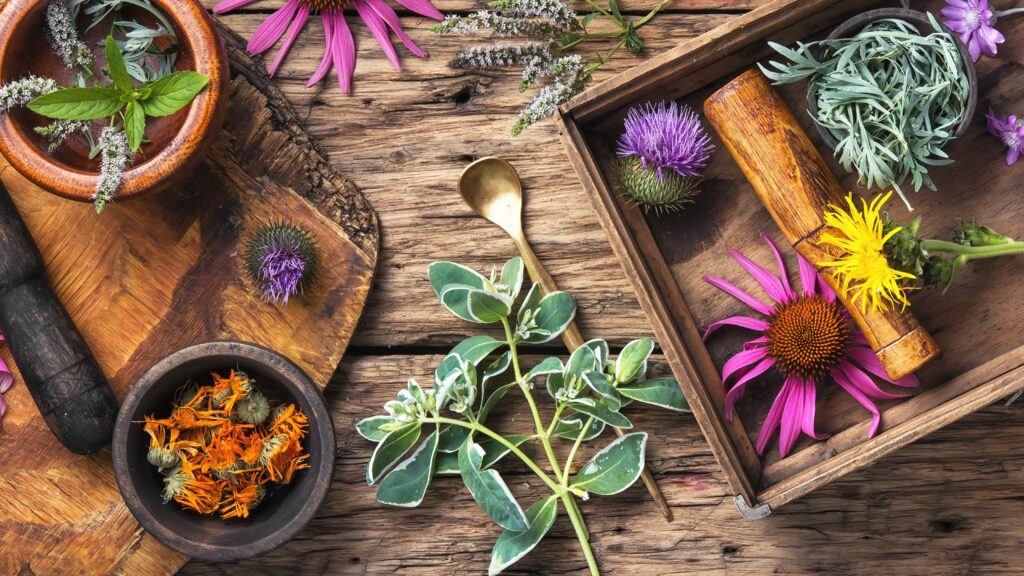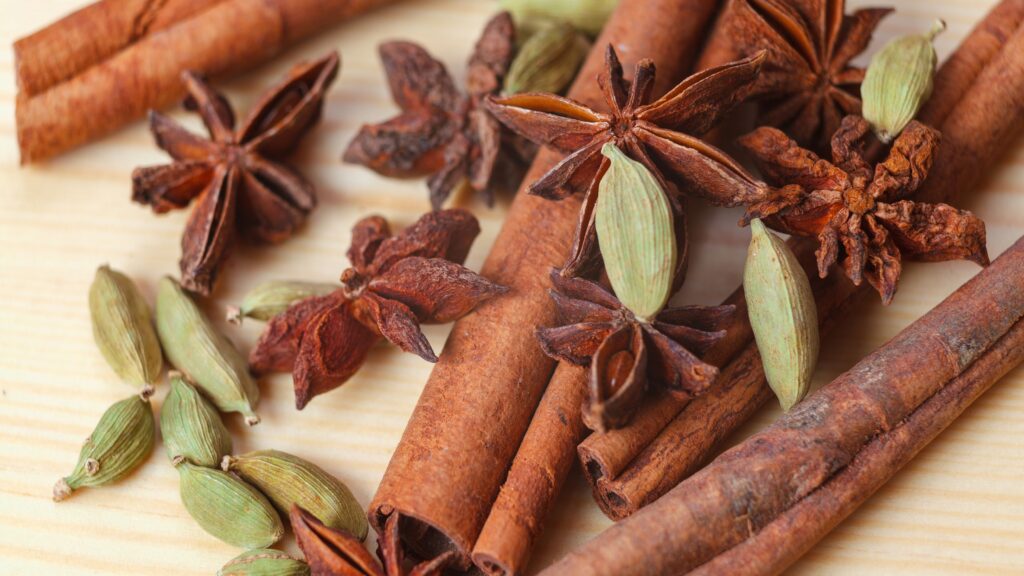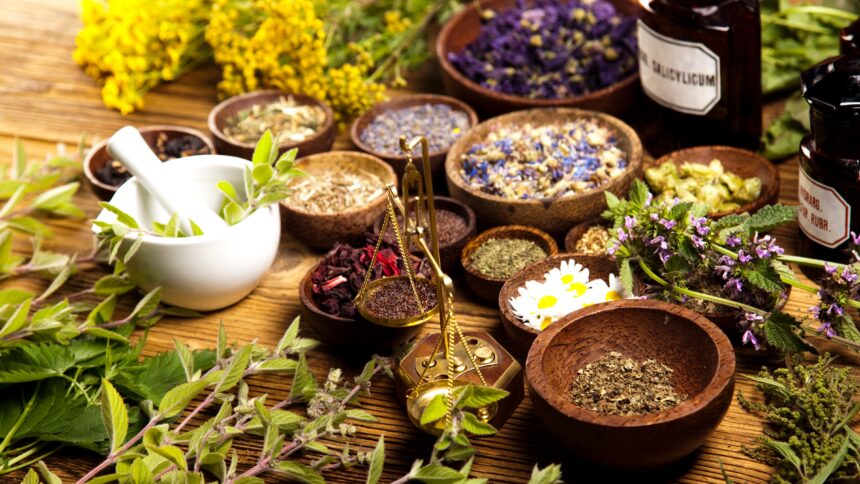Incorporating herbs into your daily life can transform your health, enhance your meals, and elevate your overall well-being. Whether you’re seeking natural remedies, culinary inspiration, or simply a way to enrich your environment, herbs offer a multitude of benefits. This comprehensive guide will explore various ways to use herbs in your daily life, ensuring you can make the most of these versatile plants.
The Benefits of Using Herbs Daily
Before diving into the practical applications, it’s essential to understand why herbs are so valuable. Herbs are rich in vitamins, minerals, and antioxidants, making them powerful allies in promoting health. They can improve digestion, boost immunity, reduce inflammation, and even uplift your mood. By integrating herbs into your routine, you can enjoy these benefits sustainably and naturally.
How Can I Use Herbs in My Daily Life?

Culinary Uses
One of the most common and enjoyable ways to use herbs is in cooking. Fresh or dried, herbs can elevate the flavor of any dish while adding a nutritional boost.
1. Everyday Cooking
Herbs like basil, oregano, thyme, and rosemary are kitchen staples. They can be used in a variety of dishes, from soups and stews to pasta and salads. For instance, adding fresh basil to a tomato salad not only enhances the flavor but also provides a source of vitamin K and antioxidants.
2. Herbal Teas
Herbal teas are a soothing way to incorporate herbs into your daily routine. Chamomile, peppermint, and ginger teas are popular choices for their calming and digestive benefits. Simply steep fresh or dried herbs in hot water for a few minutes, and enjoy a flavorful, health-boosting beverage.
3. Infused Oils and Vinegars
Creating infused oils and vinegars is an excellent way to preserve the flavors of herbs and use them in cooking. Infuse olive oil with rosemary or thyme to drizzle over roasted vegetables or salads. Herbal vinegars, such as those made with tarragon or dill, can add a zesty kick to dressings and marinades.
Health and Wellness
Herbs have been used for centuries in traditional medicine to support health and wellness. Integrating them into your daily life can help maintain balance and address minor ailments naturally.
1. Herbal Supplements
Herbal supplements, such as capsules or tinctures, are a convenient way to benefit from the medicinal properties of herbs. For instance, turmeric supplements are known for their anti-inflammatory effects, while echinacea is often used to boost the immune system.
2. Aromatherapy
Essential oils derived from herbs can be used in aromatherapy to promote relaxation and well-being. Lavender oil, for example, is well-known for its calming properties and can be diffused in the air to create a peaceful environment. Eucalyptus oil can be used to clear nasal congestion and improve respiratory function.
3. Herbal Baths
An herbal bath can be a luxurious way to unwind and treat your skin. Adding herbs like lavender, chamomile, or calendula to your bathwater can soothe irritated skin, reduce stress, and promote better sleep. Simply place the herbs in a muslin bag or infuser and let them steep in the warm water.
Gardening and Home Decor
Growing and using herbs can also enhance your living space, making it more vibrant and aromatic.

1. Indoor Herb Gardens
Creating an indoor herb garden is a wonderful way to have fresh herbs at your fingertips year-round. Herbs like mint, basil, and parsley grow well indoors with adequate sunlight and watering. Not only do they provide fresh ingredients for cooking, but they also purify the air and add a touch of greenery to your home.
2. Herbal Décor
Using herbs in home decor can bring a natural, calming vibe to your space. Dried herbs like lavender, sage, and rosemary can be used in wreaths, sachets, and potpourris. These decorations not only look beautiful but also release pleasant aromas that can enhance your mood and environment.
3. Herbal Cleaning Products
Many herbs have natural antibacterial and antifungal properties, making them excellent ingredients for homemade cleaning products. For example, infusing vinegar with lemon thyme or rosemary can create an effective, non-toxic cleaner. This is a great way to keep your home clean while avoiding harsh chemicals.
Beauty and Personal Care
Herbs can also play a significant role in natural beauty and personal care routines.
1. Herbal Skincare
Herbs like aloe vera, calendula, and chamomile are commonly used in skincare products for their soothing and healing properties. You can make your own herbal-infused oils, balms, and lotions to treat various skin conditions or simply to maintain healthy, glowing skin.
2. Hair Care
Herbs can also benefit your hair. Rinsing your hair with rosemary-infused water can stimulate growth and add shine. Chamomile is known for its ability to lighten hair naturally, making it a great option for those looking to highlight their locks without chemical treatments.
3. Herbal Toothpaste and Mouthwash
Incorporating herbs into your oral care routine can promote healthy teeth and gums. Herbal toothpaste made with ingredients like neem, clove, and peppermint can help fight bacteria, freshen breath, and reduce inflammation. Similarly, a homemade mouthwash with sage or thyme can provide antibacterial benefits and maintain oral hygiene.
Herbal Remedies and First Aid
Herbs can be incredibly useful in a home first aid kit. They offer gentle, natural solutions for minor ailments and injuries.
1. Herbal Salves and Ointments
Creating herbal salves and ointments can be a lifesaver for treating cuts, burns, and insect bites. For instance, a salve made with calendula and comfrey can promote healing and reduce inflammation. Simply infuse the herbs in a carrier oil, mix with beeswax, and store in a small container for easy application.
2. Herbal Compresses
Using herbal compresses is an effective way to relieve pain and inflammation. A warm compress with ginger or turmeric can soothe sore muscles, while a cold compress with witch hazel can reduce swelling and ease headaches. To make a compress, steep the herbs in hot or cold water, soak a cloth in the infusion, and apply to the affected area.
3. Herbal Inhalants
Herbal inhalants can provide relief for respiratory issues. Inhaling steam infused with eucalyptus or peppermint can help clear nasal congestion and soothe irritated airways. Simply add a few drops of essential oil or fresh herbs to a bowl of hot water, cover your head with a towel, and breathe deeply for several minutes.
Culinary Creativity
Herbs can inspire culinary creativity, allowing you to experiment with new flavors and dishes.
1. Herbal Butters and Spreads
Herbal butters and spreads are delicious additions to any meal. Mix softened butter with finely chopped herbs like chives, dill, or basil for a flavorful spread that can be used on bread, vegetables, or meats. Herbal-infused spreads can also be made with cream cheese or yogurt for a tangy, herby treat.
2. Herb-Infused Drinks
Herbs can be used to create refreshing and unique beverages. Infuse water with mint, cucumber, and lemon for a hydrating drink, or create herbal cocktails with ingredients like basil, rosemary, or thyme. Herbal syrups can also be made by simmering herbs with sugar and water, adding a sweet and fragrant touch to teas, lemonades, and cocktails.
3. Herbal Desserts
Herbs can add an unexpected twist to desserts. Lavender can be used to flavor cookies and cakes, while mint pairs beautifully with chocolate. Experimenting with herbs in baking and desserts can open up a world of new flavors and culinary delights.
Maintaining a Sustainable Lifestyle
Using herbs in your daily life can contribute to a more sustainable and eco-friendly lifestyle.
1. Reducing Waste
Growing your own herbs and using them fresh reduces the need for packaged, store-bought herbs, cutting down on plastic waste. Additionally, many herbs are perennial or can be regrown from cuttings, providing a continuous supply without the need for replanting.
2. Natural Pest Control
Herbs can be used as natural pest repellents in your garden. Planting basil, marigold, or mint around your garden can deter pests like mosquitoes, aphids, and flies, reducing the need for chemical pesticides.
3. Composting
Herb scraps and trimmings can be added to your compost pile, enriching the soil with their nutrients and promoting a healthy garden ecosystem. Composting herb waste is an excellent way to recycle organic matter and support sustainable gardening practices.
Enhancing Mental Well-being
Herbs can play a significant role in improving mental health and emotional well-being.

1. Stress Relief
Certain herbs are known for their calming properties and can help reduce stress and anxiety. Drinking a cup of chamomile or lavender tea, diffusing essential oils, or taking a relaxing herbal bath can create a sense of calm and relaxation.
2. Memory and Focus
Herbs like rosemary and ginkgo biloba are believed to enhance memory and cognitive function. Including these herbs in your diet or using them in aromatherapy can support mental clarity and focus.
3. Mood Enhancement
Herbs can also uplift your mood. St. John’s wort is commonly used to alleviate symptoms of depression, while lemon balm can help enhance mood and reduce irritability. Incorporating these herbs into your daily routine, whether through teas, supplements, or aromatherapy, can contribute to mental well-being.
Conclusion
Integrating herbs into your daily life offers a multitude of benefits, from enhancing culinary creations to promoting health and wellness. By exploring the various ways to use herbs, you can enrich your lifestyle with natural, sustainable, and health-boosting practices. Whether you’re a seasoned herbalist or just starting, the possibilities are endless. Embrace the power of herbs and discover how these versatile plants can




